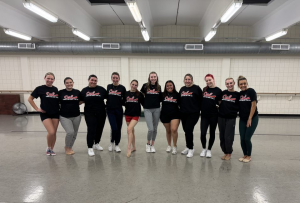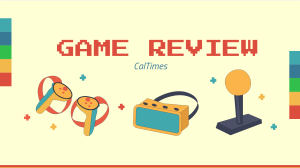AVI hosts open nutritional discussion and presentation
March 18, 2016
On Thursday, February 25th, AVI’s dietician, Michelle Apple, hosted a presentation and open discussion on healthy food purchase, preparation, and management. The event put a positive spin on eating, which causes problems for many college students. This event was organized by The Women’s Center as part of National Eating Disorders Awareness Week. Students and faculty met at the top level of Natali Student Center to learn how to make the most of their kitchens and their budgets.
Maintaining a healthy diet begins at the check-out counter. Apple recommends planning meals to be prepared throughout the week, making a list of the necessary ingredients, and shopping exclusively for them. “Americans who plan meals have better weight management,” she informed her audience. Rotating ingredients in and out of the pantry ensures that produce will be eaten before it spoils, which saves the amount of money spent on groceries. Many food service workers may recognize the term First in First out (FIFO). Operating a personal pantry like a business prevents food from lurking in the bottom drawer of the refrigerator.
Preparation matters, but the content of a diet is just as important. The United States Department of Agriculture (USDA) advises people to eat a variety of protein-rich foods, fruits, whole grains, vegetables, and dairy products. Color-coded Tupperware containers make it easy for students to meet nutrition standards while packing lunches or take-away dinners. Choosemyplate.gov also offers valuable resources to ensure that people consume enough nutrients. The site hosts a program for creating a calendar/grocery plan and lists weekly meals by category: proteins, grains, vegetables, fruits, and dairy.
It is easier to buy a rich and healthful combination of these foods while shopping on a full stomach. Although sugar- and fat-rich foods can be tempting, Apple suggests a “ground-up” approach to eating. “I don’t believe in diets even though I’m a dietician,” she explained, “I’d rather be call a nutritionist; I believe in eating real food.” Apple believes that diet change can be gradual. She recalls bargaining with a student who loved sugary cereal to mix it with a healthier brand. Eating a healthy and balanced diet can also be influenced by environment, so Apple recommends shopping at local farmers’ markets that offer natural and inexpensive options.
Eating cheap and healthy foods, like lentils, bananas, oranges, carrots, celery, onions, canned fruits, canned beans, and frozen vegetables, can a great deal of money. Eating at fast-food restaurants and sit-down restaurants is often much more expensive than a home-cooked alternative. By following Apple’s advice and using resources like myplate.gov and products’ nutrition labels, college students can save money on groceries while eliminating the cost of dieting and potential health care crises. A healthy diet improves quality of life and is made possible for everyone at Cal U with the help of sound nutritional advice and the Cal U Cupboard.






the healing diet • Mar 18, 2018 at 7:54 pm
There are many things we can do to maintain a healthy diet. The most important thing is that we know the contents of what we eat. Thereby ensuring we consume enough nutrients to keep us healthy and well.
the healing diet